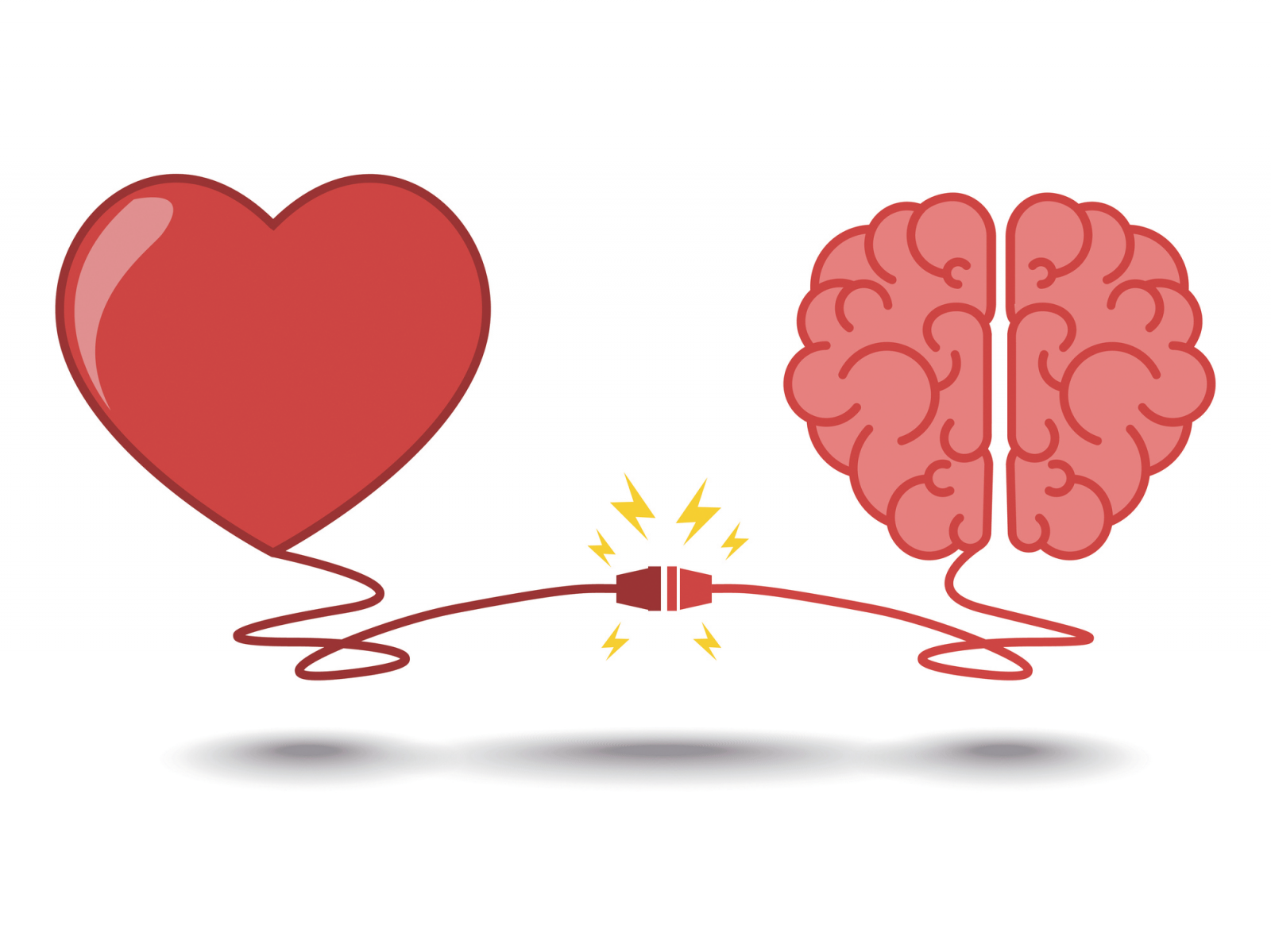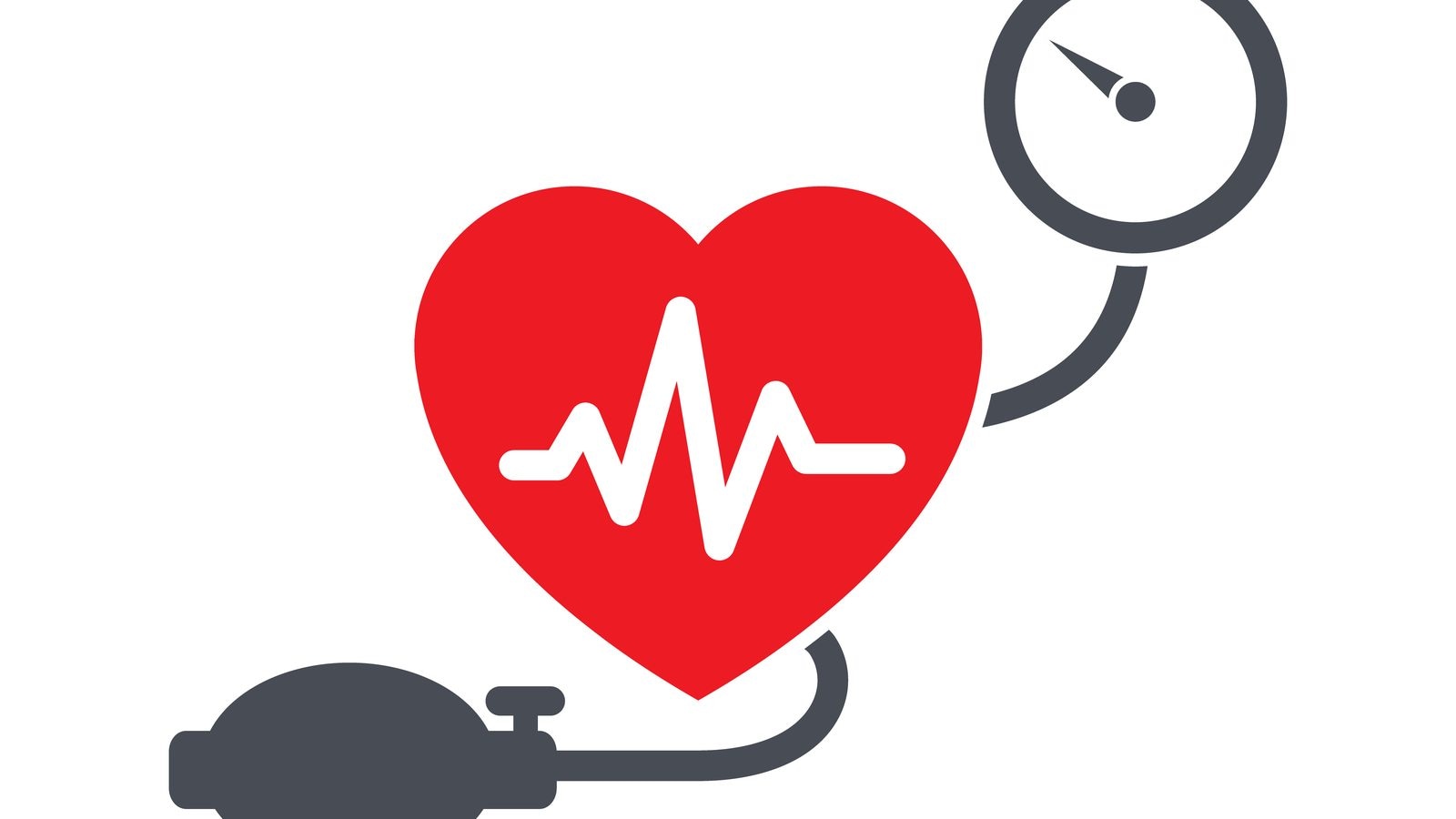BLOOD PRESSURE & HEART-HEAD CONNECTION
There's a motivation behind why your circulatory strain is taken each time you visit a specialist's office or clinic, no matter what the objection that brought you there. With good reason, high blood pressure is known as "the silent killer." It frequently conveys no side effects or cautioning signs except for can radically build your gamble of having a cardiovascular failure or stroke. The higher the number, the harder your heart is attempting to siphon blood around your body and the almost certain it is that harm is being finished to the heart muscle. Since all pieces of your body depend on flow, however, in addition to your heart hypertension can affect. In the event that blood doesn't stream effectively, it can hurt your supply routes as well as essential organs like the kidneys, eyes, and cerebrum.
Hypertension has been displayed to harm the minuscule veins in the pieces of your cerebrum liable for comprehension and memory, enormously expanding your gamble of fostering Alzheimer's sickness or another dementia. Being determined to have cardiovascular illness can likewise cause significant damage, influencing your standpoint and making you more powerless to tension and sorrow. In addition, just as your mood can be affected by your blood pressure, the opposite can also be true:
i. Stress can expand the body's creation of chemicals, for example, adrenaline and cortisol which thus raises circulatory strain.
ii. Self-curing your temperament with liquor, nicotine, low quality food, or sporting medications can likewise lift your pulse.
iii. In any event, detaching yourself from loved ones — a typical side effect of sorrow and tension — can push your pulse higher and harm your cardiovascular wellbeing.
iv. Hypertension and normal psychological wellness issues can frequently be credited, to some degree, to a similar unfortunate way of life factors, like overpowering pressure, less than stellar eating routine, and an absence of activity. Your mental health can benefit from a lifestyle change to lower your blood pressure, and vice versa.
Since new rules delivered in 2017 brought down the limit for what ought to be viewed as hypertension, increasingly more of us wind up in danger. In point of fact, high blood pressure affects nearly half of adults in the United States. While hypertension is extremely normal, fortunately it's likewise exceptionally simple to redress. Simple adjustments to your way of life can frequently have a significant impact on your numbers and support heart and brain health.
MEASURING BLOOD PRESSURE
Pulse is estimated as millimeters of mercury (mm Hg) — a remainder from the customary mercury measures utilized by the clinical business — and has two parts:
1. The larger number, or systolic pulse, is estimated as your heart siphons blood into your veins.
2. The lower number, or diastolic pulse, is estimated as your heart unwinds between pulsates.
The systolic number is recorded first, with an ideal circulatory strain perusing being under 120/80 (communicated as "120 more than 80"). The American Heart Affiliation and American School of Cardiology characterize hypertension, or hypertension, as 130/80 or over (a systolic perusing of something like 130 mm Hg or a diastolic perusing of no less than 80 mm Hg, or both).
MONETRING YOUR NUMBER
Your pulse vacillates over the course of the day, with heaps of highs and lows. It will commonly spike on the off chance that you're practicing or behind schedule for a gathering, for instance, and drop while you're resting or unwinding with friends and family. If you have been diagnosed with hypertension, you may want to keep an eye on your blood pressure at home because it can vary so widely.
Pick a home circulatory strain screen that folds over your upper arm. They will quite often be more precise than those that work on your wrist or finger.
Before taking your blood pressure, avoid consuming caffeine or smoking for at least 30 minutes. Sit discreetly in a seat for a couple of moments prior to estimating, then, at that point, ensure your arm is upheld and your elbow is at about heart level as you run the test.
Small adjustments can have a significant impact. As indicated by a Harvard study, having hypertension can expand your gamble of stroke by 220%. On the other side, decreasing your systolic pulse by 10 mm Hg can cut your gamble of stroke by as much as 44%.
IF YOU HAVE LOW BLOOD PRESSURE
Low pulse (known as "hypotension") is a considerably less normal issue than hypertension, yet it can in any case essentially influence blood stream to the mind and increment your gamble of shock, stroke, coronary episode, and kidney disappointment.
There is no particular measurement that can tell you when your blood pressure is too low. Rather, specialists depend on the presence of side effects like wooziness, blacking out, obscured vision, and precariousness while remaining to analyze hypotension.
On the off chance that you experience such side effects, your PCP will search for hidden causes, for example, prescription incidental effects, healthful inadequacies, or a heart issue. Beside a low-sodium diet, a large number of a similar way of life changes used to treat hypertension can likewise be successful for overseeing low pulse.
REASONS OF HIGH BLOOD PRESSURE
There's no single reason for hypertension, but instead many contributing elements. Some are beyond your control, like age, race, orientation, and family ancestry — circulatory strain will in general increment beyond 70 years old, influences a larger number of ladies than men beyond 55 years old, and is more normal in African Americans than Caucasians, maybe because of a hereditary aversion to salt.
Numerous other gamble factors for hypertension are inside your control. Being overweight, eating a less than stellar eating routine high in salt, smoking, drinking exorbitantly, and not getting sufficient actual activity can all effect your pulse.
There are likewise unambiguous substances that can raise your circulatory strain,:
. Coffee, tea, soda, and energy drinks are all sources of caffeine.
. Birth control pills, corticosteroids, atypical antipsychotics, MAOIs and SNRIs used to treat depression, and some cancer drugs are all prescribed medications.
. Nonsteroidal anti-inflammatory Drugs (NSAIDs), like anti-inflammatory medicine and ibuprofen (Motrin, Advil).
. Cough and cold drugs containing decongestant or NSAIDs.
. Home grown supplements, like ephedra and yohimbine.
. Sporting medications, like cocaine and methamphetamine.
. Some chewing gum and candies contain licorice.
FAQs
Q: What is blood pressure?
Blood pressure is the force of blood against the walls of arteries as the heart pumps it around the body. It is measured in millimeters of mercury (mmHg) and is expressed as two values: systolic pressure (when the heart beats) over diastolic pressure (when the heart is at rest).
Q: What are normal blood pressure levels?
Normal blood pressure is typically around 120/80 mmHg. However, optimal blood pressure may vary, and it's essential to consider factors like age and overall health.
Q: What is hypertension?
Hypertension, or high blood pressure, is a condition where the force of the blood against the artery walls is consistently too high. It is a major risk factor for heart disease and stroke.
Q: What causes high blood pressure?
The exact cause of high blood pressure is often unknown, but factors such as age, family history, being overweight, lack of physical activity, excessive salt intake, and chronic kidney disease can contribute.
Q: How is blood pressure measured?
Blood pressure is measured using a device called a sphygmomanometer. The measurement is given as two numbers: the systolic pressure over the diastolic pressure.
Q: Can lifestyle changes lower blood pressure?
Yes, lifestyle changes such as adopting a healthy diet, regular exercise, maintaining a healthy weight, limiting alcohol intake, and managing stress can help lower or control blood pressure.
Q: What are the symptoms of high blood pressure?
High blood pressure is often called the "silent killer" because it may have no symptoms. Regular blood pressure checks are essential for early detection. In severe cases, symptoms like headaches, shortness of breath, or nosebleeds may occur.
Q: Can high blood pressure be cured?
In most cases, high blood pressure cannot be cured but can be managed through lifestyle changes and, if necessary, medication. Regular monitoring and adherence to treatment plans are crucial.
Q: How often should I check my blood pressure?
It's recommended to have your blood pressure checked regularly, at least once every two years for adults with normal blood pressure. Individuals with hypertension or other risk factors may need more frequent monitoring.
Q: Can low blood pressure be a concern?
While low blood pressure (hypotension) is not always a concern, extremely low levels can lead to dizziness or fainting. It's essential to consult a healthcare professional if you experience persistent low blood pressure symptoms.
Conclusion
Understanding the intricate dance between blood pressure and heart-head harmony empowers us to make informed choices. By incorporating healthy lifestyle practices, nurturing our minds, and prioritizing heart health, we pave the way for a harmonious and balanced life.





0 Comments